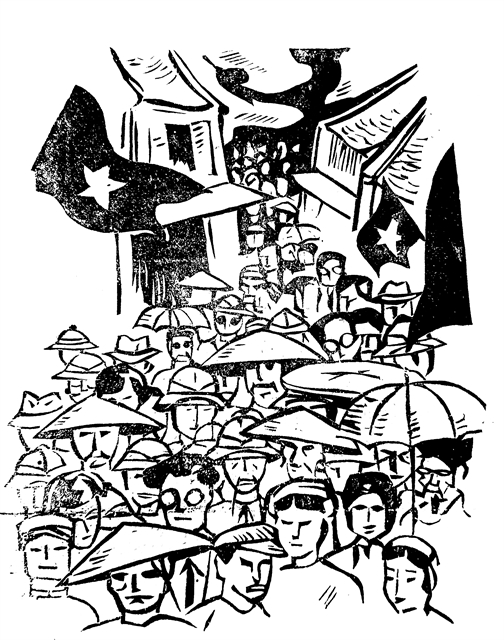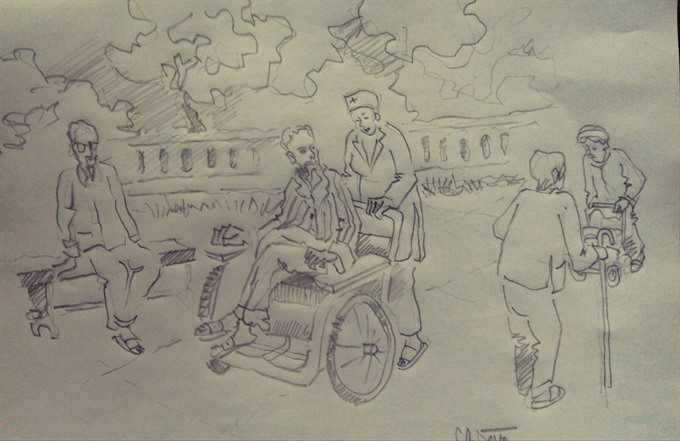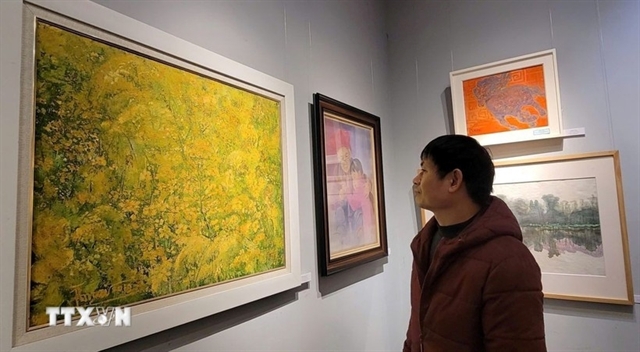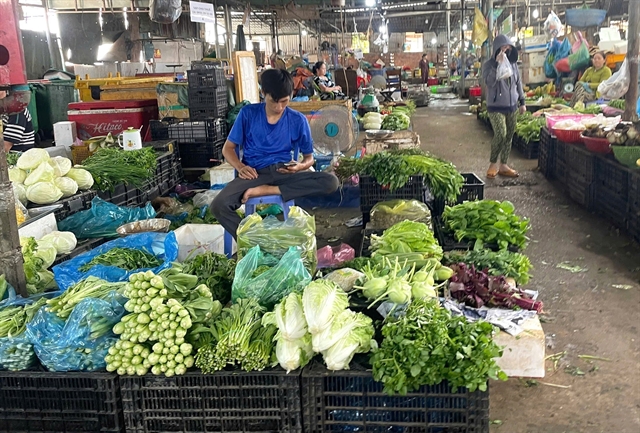 Talk Around Town
Talk Around Town

Old people aged 60 and more are expected to account for 17 per cent of Việt Nam’s population by 2030 and 25 per cent in 2050 but the country almost have no programmes or solutions in places to adapt to the aging population.
 |
By Bích Hường
Imbued with the strong Confucian ethic of filial piety and the tradition of ancestor worship, we Vietnamese typically take our duties towards our parents and the elderly very seriously.
An attitude of gratitude is very good, but is it closing our minds to a serious demographic challenge?
Let’s look at some facts. People aged 60 plus will form 17 per cent and 25 per cent of Việt Nam’s population by 2030 and 2050 respectively, but there are almost no solutions or programmes in place to deal with this demographic challenge, some experts have pointed out.
Nguyễn Văn Tân, deputy general director of the General Office for Population and Family Planning, said at a workshop on Monday that the absence of response measures was worrying because the country lacked healthcare facilities and services for the elderly.
Tân said primary and geriatric healthcare in Việt Nam has not received proper attention as the nation’s aging population increased.
“We need to have fully staffed nursing homes with monitoring facilities that can provide intensive, long-term medical care to seniors with serious health conditions. This is an important preparatory step as the country’s aged population increases,” Tân said.
However, there are no public nursing homes in Việt Nam and social centres are not qualified to be nursing homes for the elderly because they take care of disadvantaged children – a group with needs very different from the elderly, according to the official.
Private nursing homes are available, but these are very few, with some that can accommodate a maximum of 100 senior citizens and others able to take care of just 30 people.
Apart from the modest number and size of nursing homes, Vietnamese, like many citizens in other Asian countries, are hesitant about sending the elderly to nursing homes for fear of failing their filial duties.
"This mindset has partly hindered the development of nursing homes for the elderly in Việt Nam," Tân said.
Is it time for us to be more open and tolerant of nursing homes and the practice of having nursing homes tend to our senior citizens?
I know one case where a married woman could not live with or take care of her mother properly. The mother, who suffers from some conditions typical among the elderly, lives alone as she does not get along well with her son and his nuclear family.
The married woman wanted to send her mother to a nursing home so that she could receive proper care, but as soon as she shared her thought, many people criticised her, saying, “every one has just one mother to take care of!” or “Are you an ingrate? It’s your duty!”
Others say that the elderly themselves do not want to live far away from their children and family. While they do need food, medicines or medical care, they also need a family atmosphere or at least, be at home to see their children and grand children grow up.
Let us consider another case. This happened in Quảng Ninh Province early this month.
On July 9, 79-year-old Nguyễn Thị Hồng of Quảng Yên Town was taken to the hospital after falling down in her bathroom early in the morning. She had fractured her right thigh bone. Three days after a surgery, she died of pulmonary infarction. Her family was livid, and blamed her death on the hospital’s doctors and surgeons.
Commenting on the case, HCM City-based Dr Võ Xuân Sơn said on his Facebook page that surgery for fractured thigh bones carried a high risk of fatality even in developed countries when the patient was old. He said the top causes for death in such cases are pneumonia, respiratory failure and pulmonary infarction.
Hồng suffered from normal complications, doctor Sơn said, adding that if people insisted on pinning responsibility on someone for her death, her family would have to take the blame.
“It was their fault to let the old woman fall down. It was their fault that they did not feed her well, so that she lacked calcium and her bones could break easily,” Sơn wrote on his page.
Obviously, the elderly need special care. If you are not sure you can give them that care, why don’t you entrust the task to those who can, especially skilled staff at nursing homes?
Of course, this calls for a developed system of nursing homes that provides reliable service.
Deputy Health Minister Phạm Lê Tuấn said on Monday that Việt Nam has about 10.1 million old people, accounting for 11 per cent of population.
A national survey by the Việt Nam National Committee on Ageing in 2011 found 72.3 per cent of the elderly were living with their children and grand children, 10 per cent were living alone, and 15 per cent living with their spouses.
He said the ageing population was both a challenge and opportunity for Việt Nam, particularly for enterprises that can offer improved services to the elderly.
Tuấn also said the ministry has approved a plan on healthcare for the elderly that envisages improvements in community-based care for elderly.
He said that if healthcare for the elderly only relied on hospitals and nursing homes, it would be very costly.
“The extended family where generations of family members live together under the same roof is a cultural tradition and an advantage for promoting community-based healthcare,” Tuấn said.
It makes sense, calling for a balance between formal facilities for the elderly and strengthening extended family and community support.
However, for overall future success in taking care of our elderly, we need to open our minds to all possible situations, and not stigmatize those who do resort to nursing homes.
Most importantly, we should give our seniors the respect and love they deserve, and give them a say in deciding what is best for them. — VNS




